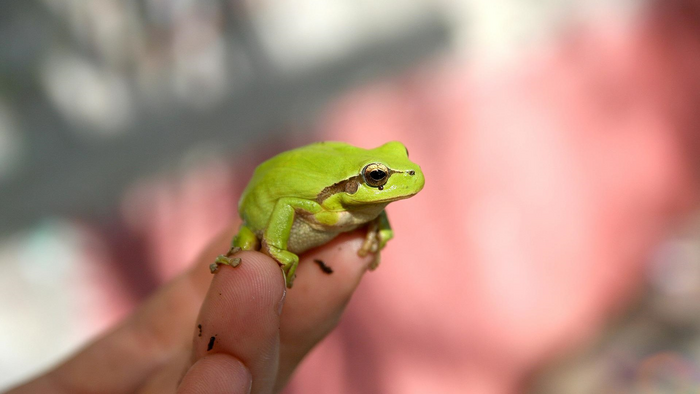The evolution, emergence and spread of novel pathogens has been widely discussed even before the first case of COVID-19 was reported in 2019. A team of researchers at the University of Tennessee, Knoxville, has received a $2.75 million grant to identify disease mitigation strategies that will minimize the risk of amphibian pathogens spreading from captive pet populations to wild populations and negatively impacting biodiversity.

Credit: Pixabay
The evolution, emergence and spread of novel pathogens has been widely discussed even before the first case of COVID-19 was reported in 2019. A team of researchers at the University of Tennessee, Knoxville, has received a $2.75 million grant to identify disease mitigation strategies that will minimize the risk of amphibian pathogens spreading from captive pet populations to wild populations and negatively impacting biodiversity.
The project, “Socioeconomic and Epidemiological Drivers of Pathogen Dynamics in Wildlife Trade Networks,” is being funded by the Ecology and Evolution of Infectious Diseases Program, a joint program of the National Science Foundation, National Institutes of Health and the U.S. Department of Agriculture. The work is overseen by Principal Investigator Matt Gray, professor in the UT Institute of Agriculture Department of Forestry, Wildlife and Fisheries and associate director of the UTIA Center for Wildlife Health. The project’s two UT co-principal investigators are Neelam Poudyal, also a professor in Forestry, Wildlife and Fisheries; and Nina Fefferman, director of the National Institute for Mathematical and Biological Synthesis, professor in Ecology and Evolutionary Biology and an associate director of the UT One Health Initiative.
The goal of the study is to identify how socio-economic decisions and pathogen dynamics impact each other in a wildlife trade network.
“It is important to study how human values and knowledge impact behavior in preventing transmission of pathogens within and beyond the trade network,” says Poudyal. “This study will enable us to understand factors that determine human decisions to engage in biosecurity practices, assess the feasibility of market-based mechanisms to promote healthy trade, and characterize the public value of protecting natural populations of amphibian biodiversity.”
For the next five years, the team will determine what aspects of the trade, like species composition and the number of animals, influence pathogen occurrence. With more than 2.5 million live animals moving throughout more than 180 nations per year, the need for advanced pathogen mitigation is critical. This is the first study to investigate the bidirectional coupling between socioeconomic factors and pathogen dynamics across a tractable wildlife trade network.
“Global and domestic trade of wildlife is one of the major pathways for movement and introduction of wildlife and zoonotic pathogens,” says Gray. “Our research is focusing on amphibian pathogens in trade but will be used as a model for other pathogens of concern.”
Many infectious outbreaks, like that of monkeypox, chronic wasting disease and COVID-19, have been linked to wildlife trade. These outbreaks cost economies trillions of dollars, cripple biodiversity and result in substantial loss of human life.
“Especially as global trade markets have become more interconnected, we’ve seen over and over again how animal trade practices can either foster or else help prevent the emergence of infectious disease outbreaks in wildlife and people, sometimes with devastating effects,” says Fefferman. “Our work to discover how people make choices about how they buy, transport, and sell animals and how that shapes pathogen dynamics will help us guide policies to support conservation and prevent the next global pandemic.”
The collaborating institutions on this project are the University of Tennessee, Knoxville, including the UT Institute of Agriculture; Washington State University; Michigan State University; University of Massachusetts; and Rutgers University. The team is also collaborating with the amphibian trade industry through a partnership with the Pet Advocacy Network.
This research project was initially supported by the UT One Health Initiative through one of its seed grants. More information about that grant can be found at onehealth.tennessee.edu/pijac. Carrie Castille, senior vice chancellor and senior vice president of UTIA, which oversees the UT One Health Initiative, is excited to see the initiative receive such recognition. “This grant recognizes the importance of our researchers’ work to protect the health of humans and the natural world around us. The synergies that exist within the UT One Health Initiative and the contributing institutions are unique and incredibly important to our nation and the global society,” she said.
Through its land-grant mission of research, teaching and extension, the University of Tennessee Institute of Agriculture touches lives and provides Real. Life. Solutions. utia.tennessee.edu.




